By Halle Newman
Christine Blasey Ford, 51, recalled going to a party in Bethesda, Maryland, at age 15. On her way upstairs to use the bathroom, she said she was pulled into a bedroom by two older boys and pinned down on a bed by one of them as he attempted to take off her clothing. She said she tried to scream, but the boy on top of her covered her mouth.
Ford said she narrowly escaped, left the party, and kept the incident to herself.
Until now.
Ford identified United States Supreme Court Justice nominee Brett Kavanaugh as the man who attempted to rape her that night 36 years ago. She publically released her accusation in an interview with The Washington Post, published September 16.
President Donald Trump nominated Kavanaugh, a United States Court of Appeals Circuit Judge, for the Supreme Court on July 9, 2018. The vote to confirm his nomination to the Supreme Court was delayed to accommodate a hearing that took place Thursday, September 27. Both Kavanaugh and Ford testified.
In the wake of the #MeToo movement and a tumultuous year of women coming forward with allegations of sexual harassment against politicians, movie stars, directors and more, Ford’s accusation once again confronts the nation with a “his-word-against-hers” situation. But this time, a woman’s testimony isn’t just making a headline or trending a hashtag; it has potential to impact the credibility of the United States Supreme Court.
Morality
Ford told the Washington Post that Kavanaugh and his friend Mark Judge, who allegedly helped him pull her into the bedroom, were both “stumbling drunk”. Yet, at the hearing on September 27, Utah Senator Orrin Hatch (R) defended Kavanaugh’s alleged actions.
“[Kavanaugh] was an immature high schooler; so were we all!” Hatch said. “Immaturity does not equal criminality.”
The idea that adults should not be responsible for their adolescent actions is shared by teens as well.
“As high schoolers I’m pretty sure we all know that we make mistakes,” BHS senior Riann Gianni said. “But they don’t represent who we are as adults and who we are as authoritative and professional people.”
Senior Erika Custodia said that mistakes should be viewed through a different lens when alcohol is involved.
“Let’s say he did do it and he can prove that he was intoxicated that night. Of course it’s something terrible to do but if it’s under some other influence like alcohol or drugs, [Ford] shouldn’t really be ruining his career.” Custodia said. “He made a mistake thirty years ago. ”
BHS History teacher Dan Hagan worries that excusing these behaviors as trivial or acceptable in teens is the real mistake.
“If these allegations are true, and if [Kavanaugh] gets on the Supreme Court, what’s the message we’re sending to our young boys about what you do in high school, and how your actions will be looked over later in life?” Hagan said. “I’m also concerned about what it says to women in high school. If there is a woman who is coming forward saying ‘this happened to me’, and the country isn’t taking that seriously, what kind of message does that send to young women?”
The Washington DC Statute of Limitations states that charges regarding sexual assault must be filed, at most, three years after the incident to be valid in a court of law. But junior Isadora Bailey Hall says accusations like these are not about legality.
“Criminally, it may be different, but the Senate isn’t trying him on whether or not he should be charged for this,” Bailey Hall said. “They’re deciding whether or not he’s a good person [for the] Supreme Court.”
Kavanaugh’s ability to make decisions is called into question through these allegations.
“You want people with a very strong moral compass,” Bailey Hall said. “It’s about whether or not we trust him to make decisions for our country. Maybe he’s changed since then, but if he has then why would he be denying it?”
Additional Allegations
Bailey Hall says she is inclined to believe Ford, especially after another allegation against Kavanaugh came out on September 23. His former classmate at Yale University, Deborah Ramirez said Kavanaugh sexually harassed her at a party at Yale in 1983. And then on September 26, Julie Swetnick, who works in the United States Treasury Department, alleged that Kavanaugh was present at a high school party where she was drugged and raped by a group of boys. Swetnick told CNN on September 26 that Kavanaugh and his friends would spike the punch at parties, which would “cause girls to lose their inhibitions and their ability to say ‘no.’”
Ford, Ramirez, and Swetnick all share similar stories, and face the same question: why did they wait so long to speak?
Shame, denial, minimization, low self-esteem, and fear of consequences are among the reasons that victims of sexual assault often wait to come forward or never come forward. Still, others see ulterior motives.
“Why did [Ford] wait? She should’ve [come forward] in high school, when it happened, not now,” senior Tao Strickler McCann said. “If [Kavanaugh] did try to rape her, that’s a terrible thing to do, but it seems bad to wait for him to be successful and then pull that out. It’s like she’s trying to pull the carpet out from under his legs.”
Originally, Ford submitted the accusation anonymously to The Washington Post in July 2018, and later sent a letter to her congresswoman, Anna Eshoo, and California Senator Dianne Feinstein under the name “Christine Blasey”, expecting her story to stay confidential. She refused to speak on record until mid-September.
“It’s really convenient for the Democratic Party,” Custodia said. “I’m skeptical about her honesty.”
Senior Simon Kissam sees the timing of Ford’s accusation in a different light.
“Becoming a nominee for Supreme Court Justice provides a way for [Ford] to come out in a way that makes sense,” Kissam said. “If she had been thinking, ‘oh maybe I should do this’, that might have been the event that pushed her over the edge.”
In her testimony at yesterday’s hearing, which Kavanaugh admits to not listening to, Ford said she feels a responsibility to speak out.
“I am here today not because I want to be. I am terrified.” Ford said. “I am here because I believe it is my civic duty to tell you what happened to me while Brett Kavanaugh and I were in high school.”
However, even if Ford somehow proves that Kavanaugh tried to rape her, he could still become a Supreme Court Justice; after all, history is on his side.
Hill’s History
If Kavanaugh is confirmed, he will become the second Supreme Court justice accused of sexual misconduct during his nomination process.
In 1991, Supreme Court nominee Clarence Thomas faced allegations of sexual harassment during his nomination process. Anita Hill, an attorney who worked under Thomas at the United States Department of Education and the Equal Employment Opportunity Commission, gave testimony that Thomas continually harassed her by making vulgar comments, pressuring her to go out with him, and intimidating her to the point where she feared for her job and her safety. Despite her testimony, Thomas was sworn into the Supreme Court with a vote of 52-48, where he resides to this day.
“I honestly believe that if Kavanaugh is found guilty of something he did in high school, he could easily be a Supreme Court Justice, too,” Custodia said.
Bailey-Hall does not like the idea of history repeating itself.
“Why didn’t they listen to Anita Hill?” Bailey Hall said.
“It’s sad that we’re willing to listen now and we wouldn’t listen then,” she said. “It makes me happy that things have changed, [and that] people do take this seriously.”
Hagan believes that this idea of growth will be tested during this process.
“In the 1990s, the country’s understanding of sexual harassment was probably in the stone ages,” Hagan said. “We hadn’t gone through the Clinton scandals yet; we hadn’t gone through the MeToo movement, and the hope of many is that from Anita Hill up until today, we’ve seen tremendous growth as a society.”
Hagan said the senate hearing is a measure of whether or not we have moved forward out of the stone ages.
Senator Hatch thinks otherwise. At the yesterday’s hearing, he said that what was happening with Kavanaugh was “worse than what happened with Clarence Thomas”.
Investigation Inconsistency
Although the Kavanaugh case seems to echo Thomas’s situation, there is a notable discrepancy in the investigation process; there is no FBI involvement into the Kavanaugh allegations; whereas, the FBI investigated Hill’s allegations 27 years ago.
“There should be an FBI investigation,” senior Simran Padgett said.
She believes that if Ford’s allegation was not made against a nominee for the Supreme Court, an investigation would have been conducted.
Although Ford’s attorneys asked for the FBI to investigate, the White House rejected their request.
Sophomore Elsa Adrien explained that an FBI investigation would be integral to strengthening Ford’s case.
“She’s trying to verify her claim,” Adrien said.
During the hearing, California Senator Kamala Harris (D) asked Kavanaugh if he would ask the White House to conduct an investigation surrounding the allegations. Instead of answering yes or no to Harris’s repeated attempts of getting him to directly answer the question, Kavanaugh said he was just complying with what the Committee wanted him to do.
Former Vice President Joe Biden oversaw the hearings that took place between Hill and Thomas in 1991. In 2017 Biden apologized for the way Hill was treated by his colleagues on Capitol Hill.
“I wish I had been able to do more for Anita Hill. I owe her an apology,” Biden said. “My one regret is that I wasn’t able to tone down the attacks on her by some of my Republican friends. I mean, they really went after her.”
Hill said that she received death threats and was relentlessly shamed for coming forward.
“My family was threatened, along with me. My friends were threatened,” she said in an interview with NPR on September 25. “Anybody who dared support me were also threatened with loss of life, loss of jobs.”
Hill describes Kavanaugh’s hearing as unfair to Ford.
“In a real hearing and a real investigation, other witnesses would be called, including witnesses who could corroborate, witnesses who could explain the context of the experiences of Dr. Blasey Ford and Judge Kavanaugh during that period in their lives, as well as experts on sexual harassment and sexual assault,” Hill said.
Vermont Senator Patrick Leahy, the most senior member of the Senate Judiciary Committee, who was also present at the Thomas hearings in 1991, responded to the Kavanaugh hearings in an interview with NPR yesterday. He, too, wishes there was an FBI investigation.
“I think that they’re purposely hiding some things, trying to hurry this through,” Leahy said. “And if you want to run the thing through without getting everything out there, what are you trying to hide? If there’s nothing to hide, why not take the time? We’re talking about a lifetime appointment.”
Hill hopes that Kavanaugh will not receive the appointment Thomas did.
“There is no way to redo 1991, but we can do better.” Hill wrote in a New York Times op-ed.
The Politics
Senior Jackson Elder and Custodia both discussed the probability that the hearing is just theater.
“[The Democrats] are trying to delay the process until the midterm elections so they can win back the house,” Elder said.
Adrien disagrees.
“If they push the trial back, that’s good for the Democrats and the Republicans,” Adrien said. “If she’s wrong, that’s good for the Republicans.”
Adrien said if she’s right, and the allegations are proved correct, the Democrats land on the moral high ground.
Chuck Grassley, Chairman of the Senate Judiciary Committee, announced on Tuesday, September 25, that outside investigator Rachel Mitchell, an Arizona prosecutor who specializes in sex crime cases, would question Ford at the hearing on the 27th.
Hagan said that this is an effort to make the hearing appear fair.
“The Republicans might find themselves in a situation where they earn their nominee to the Supreme Court, but the optics of eleven male Republicans questioning a woman who is accusing their appointee of something that happened many years ago doesn’t look good in the court of public opinion,” Hagan said.
A record from 2012 of notes from Ford’s couples therapy reveal written documentation of Ford talking about sexual assault that occurred in high school. Ford told The Washington Post that the attempted rape “derailed” her for years, and that she is still dealing with post-traumatic stress and anxiety.
“Whether or not everything that [Ford] said is exactly true, it is unlikely that such a thing could be totally fabricated out of thin air,” Kissam said. “It’s possible that it is just totally a basis accusation, however I would say that in general, where there’s smoke there’s fire.”
Hagan said this hearing is an opportunity.
“It’s interesting to see if this will end up being a do-over for society,” Hagan said. “If the Anita Hill allegations had been treated differently…we’ll think of this as a second chance to look at allegations like this, and see what we think of them as a society.”
But in this moment, it’s not about what society thinks; it’s about what the Senate thinks.
“We are 21 imperfect senators trying to do our best to provide advice and consent,” Republican Senator Jeff Flake of Arizona said at the hearing. “And in the end, there is likely to be as much doubt as certainty going out of this room today.”




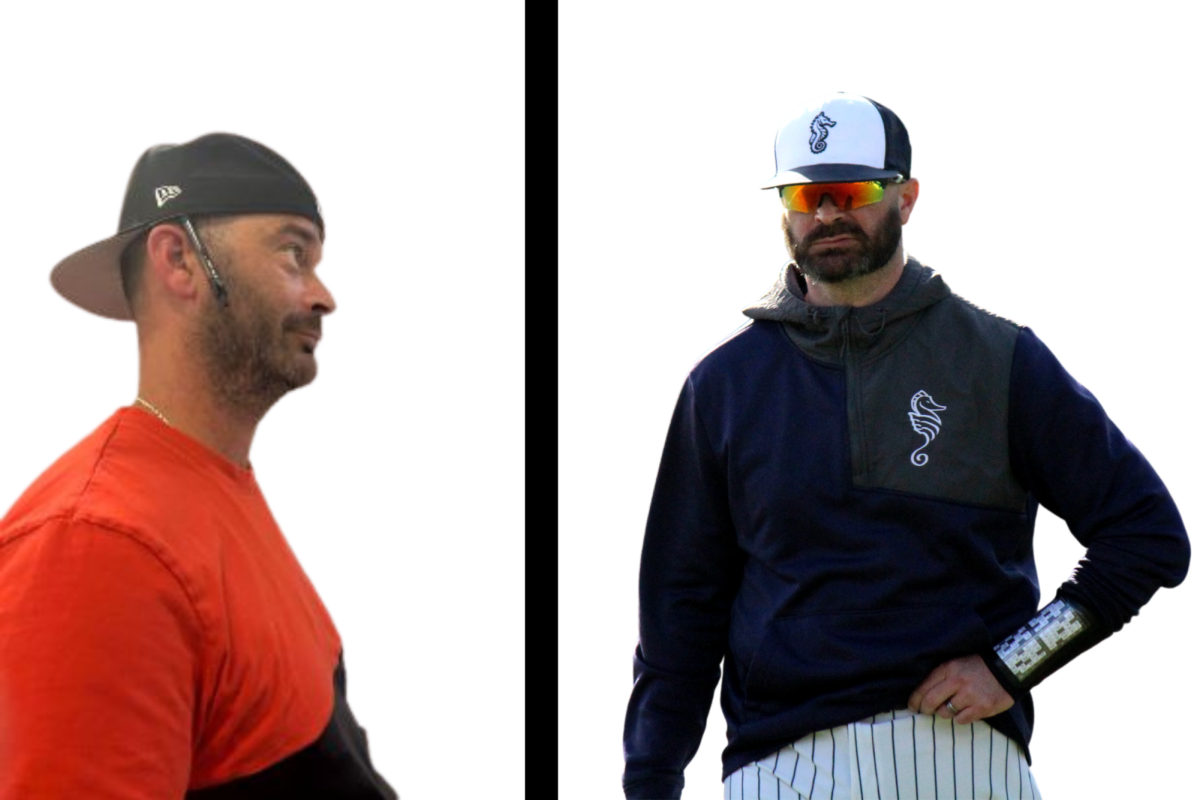
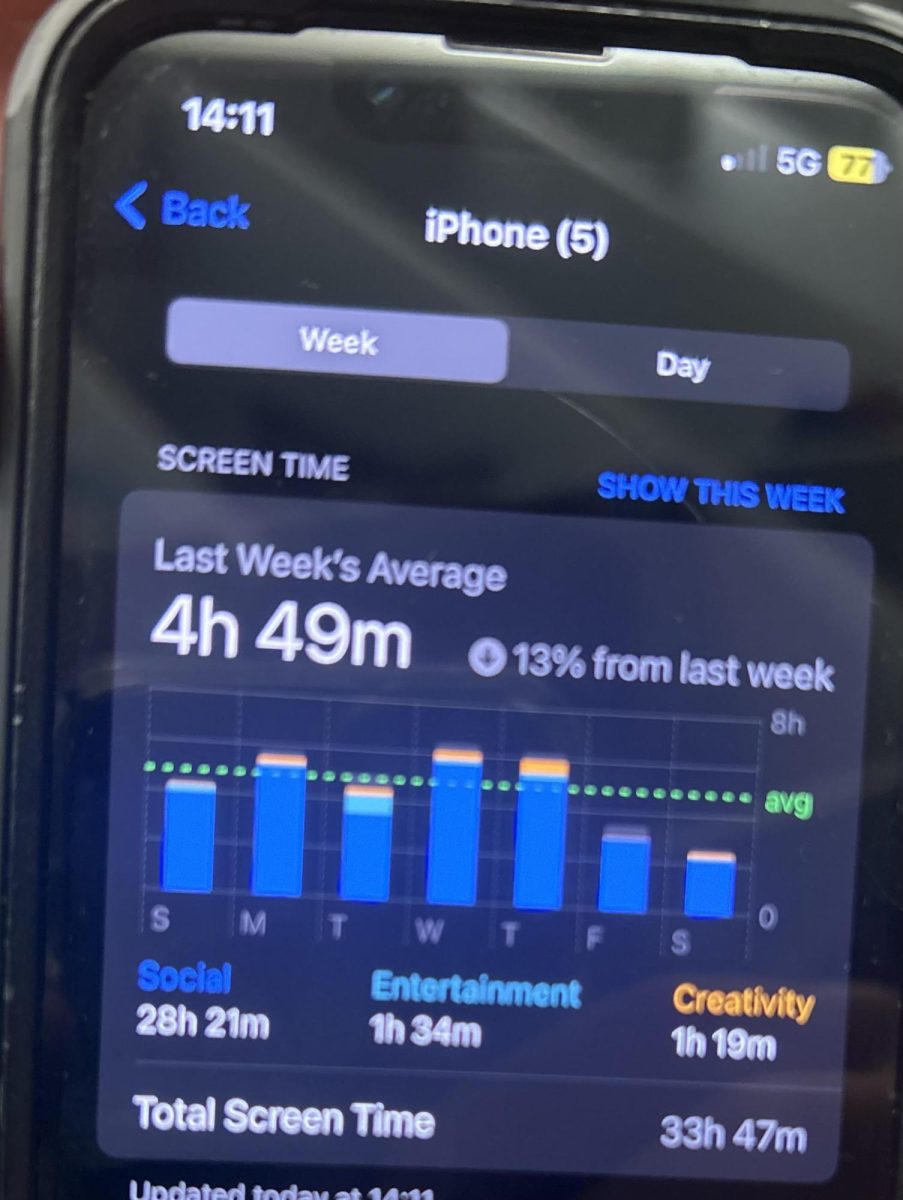
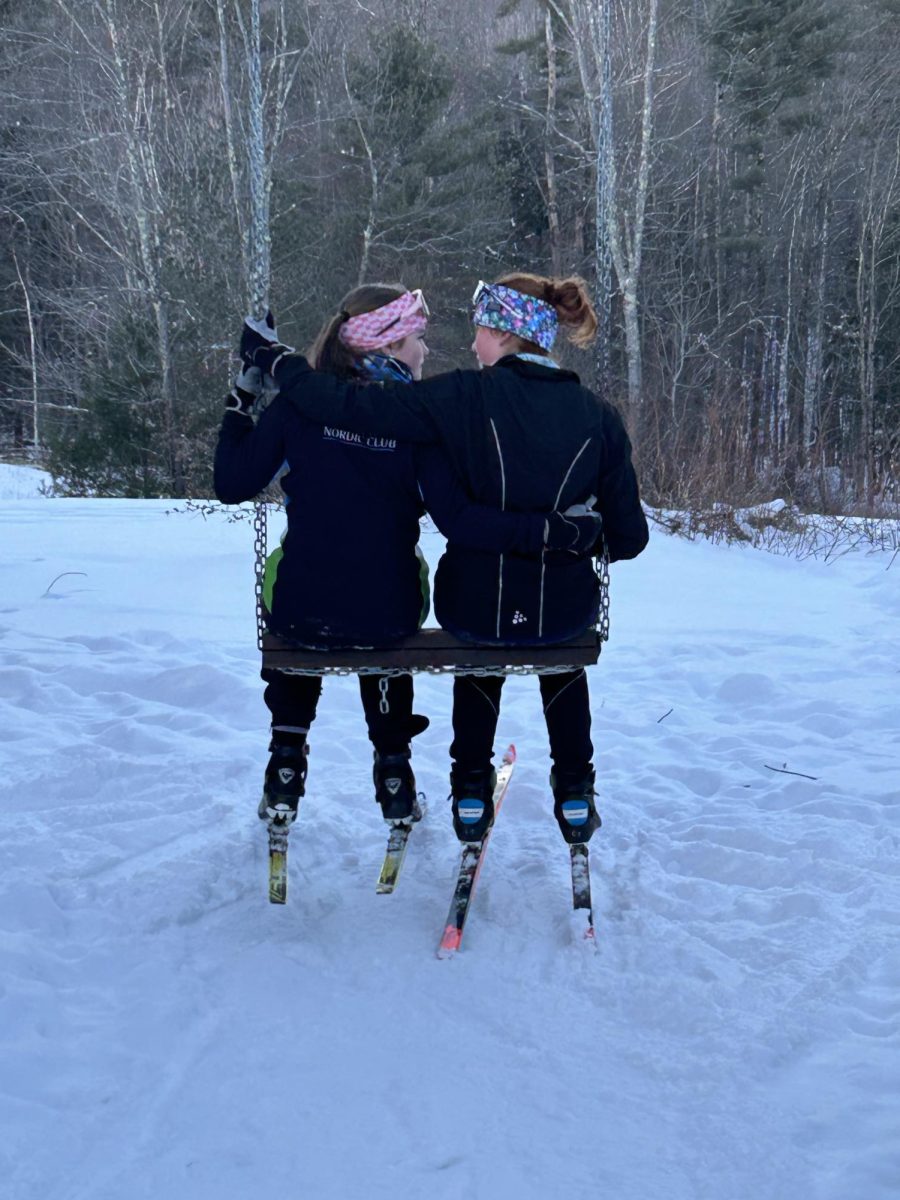
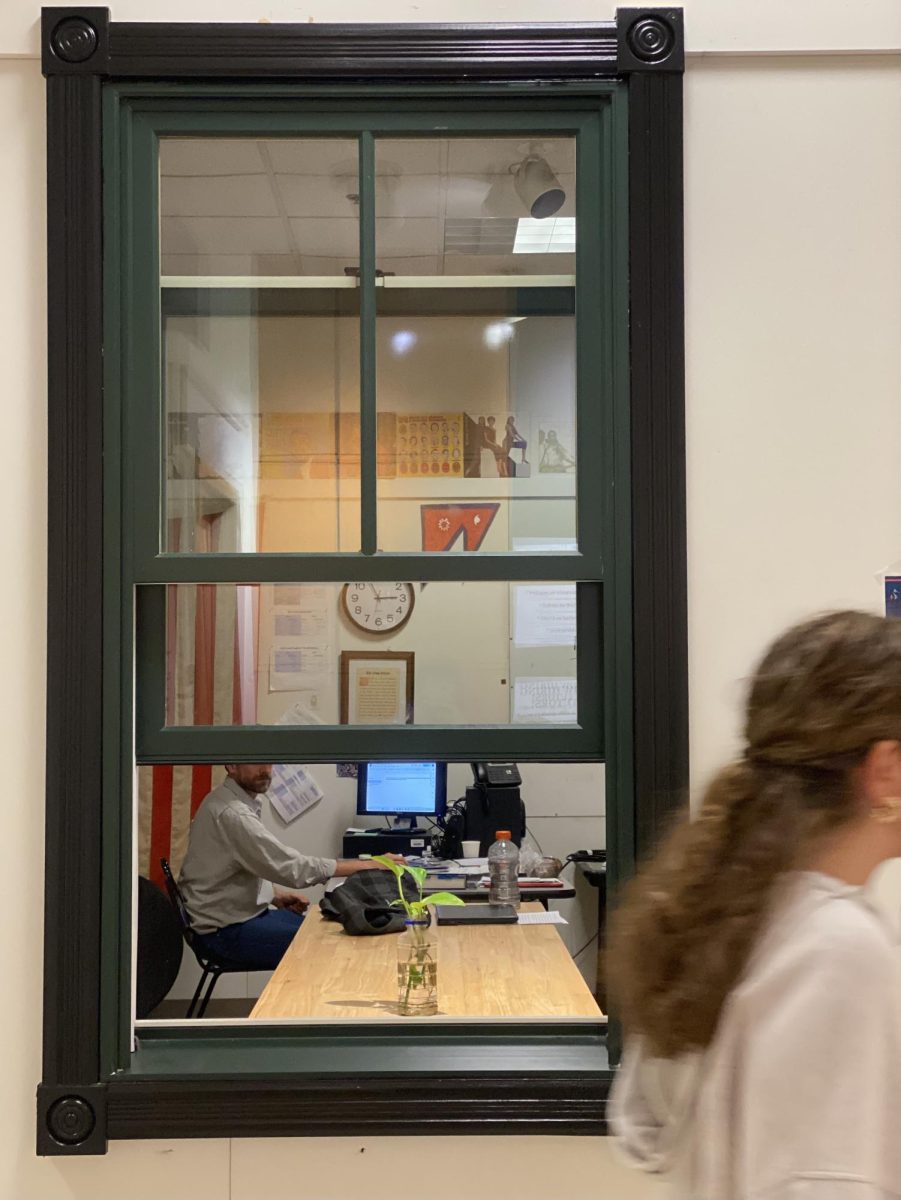


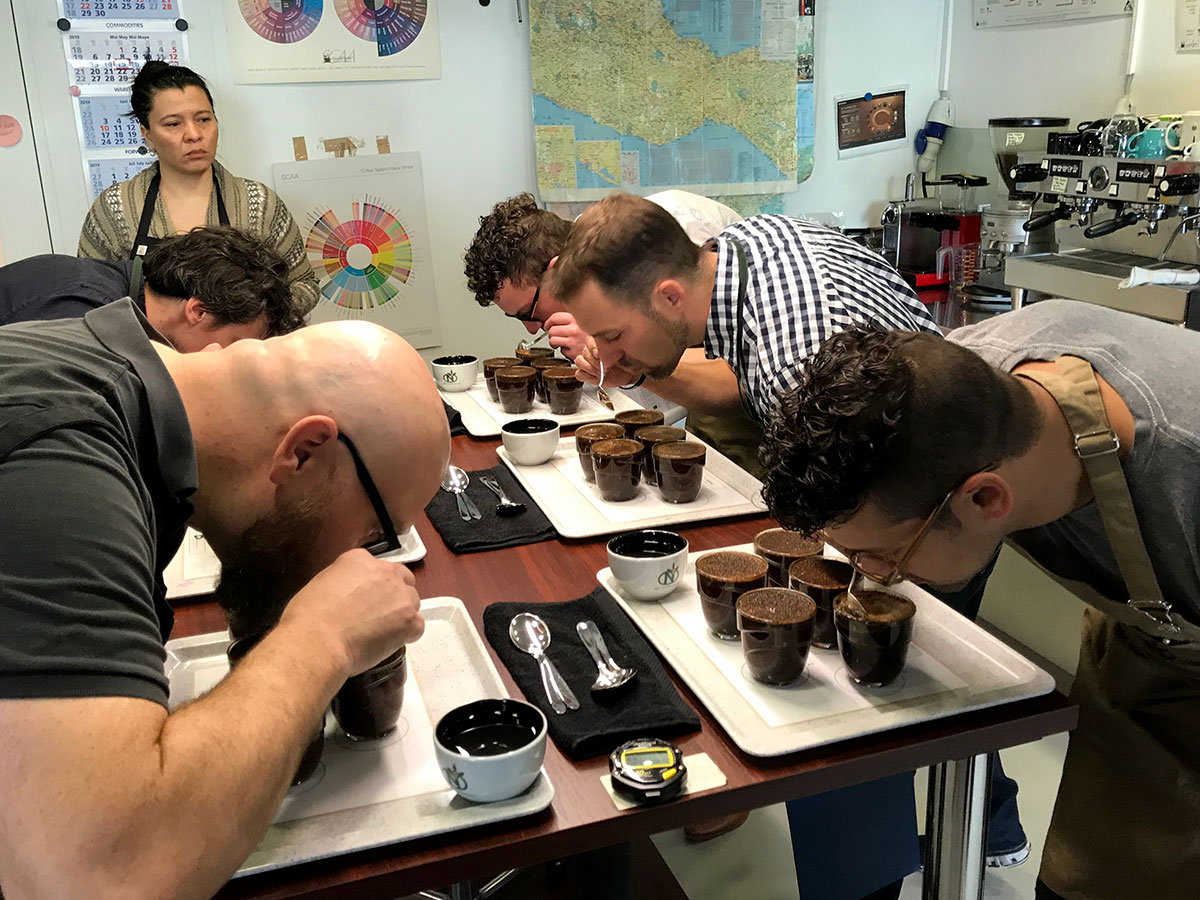
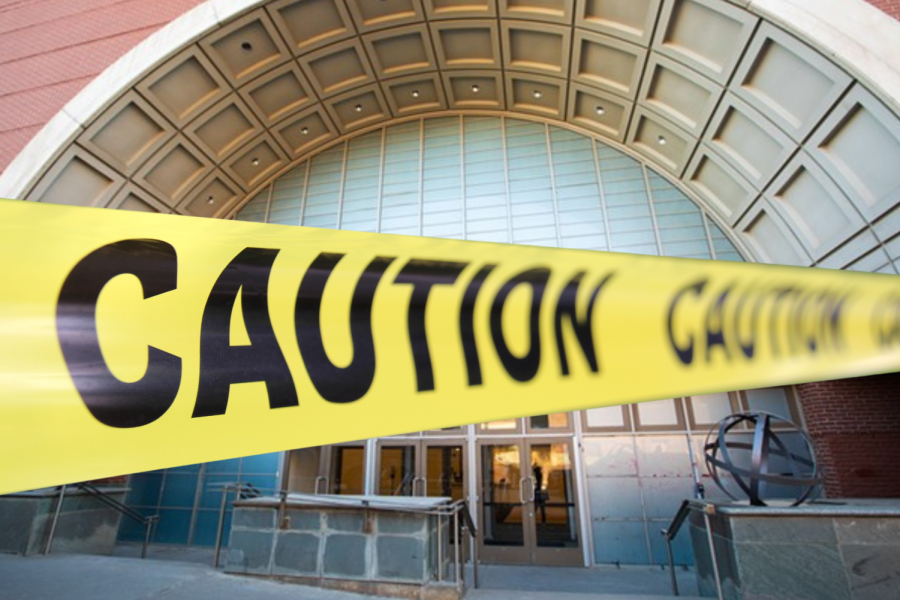
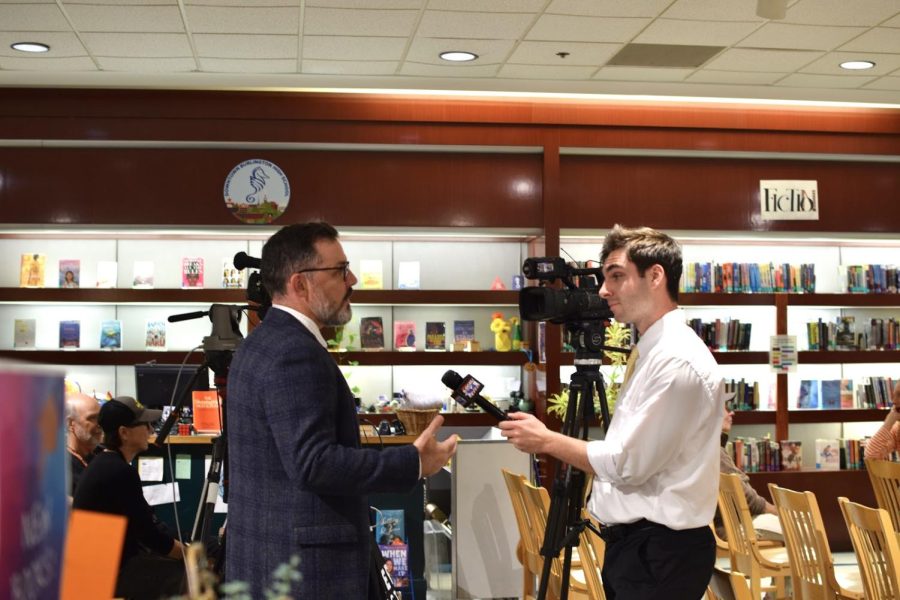
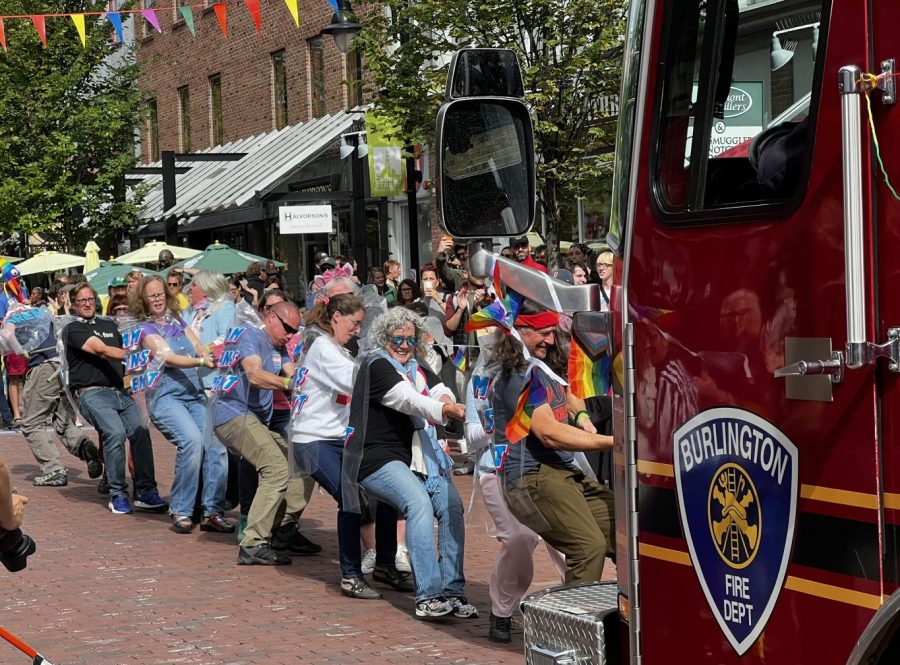
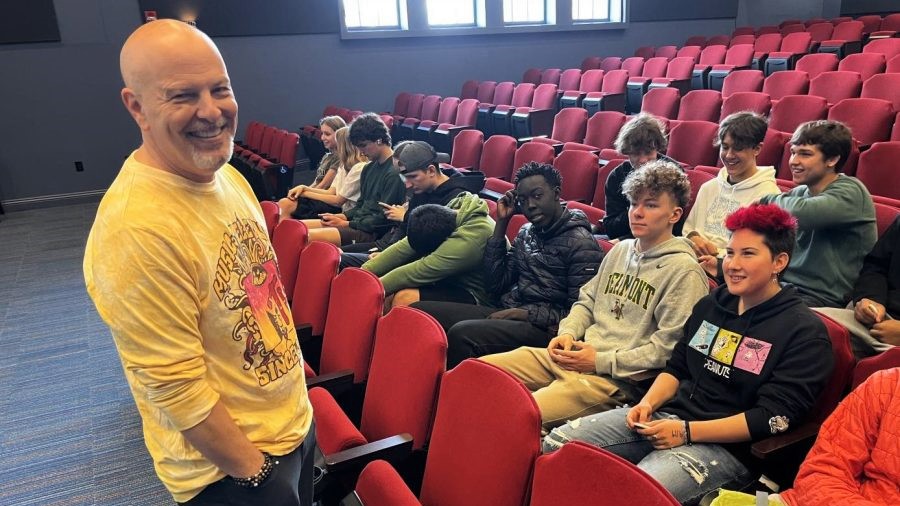

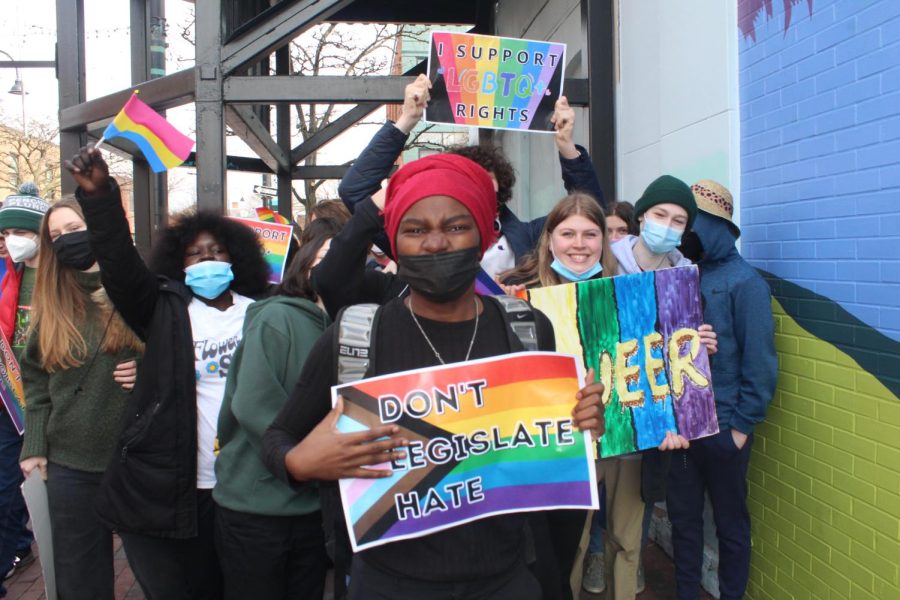
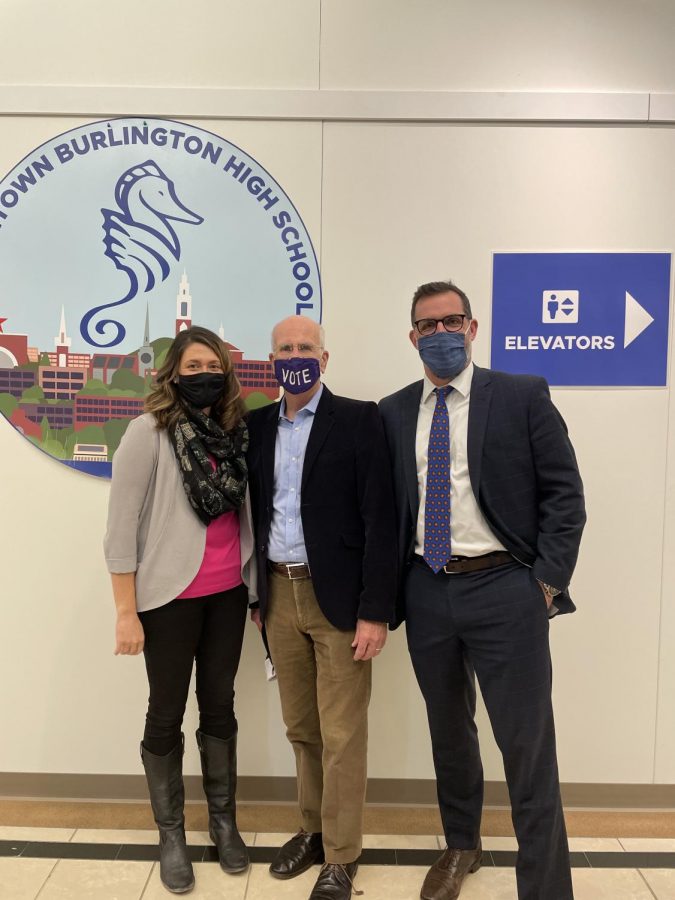
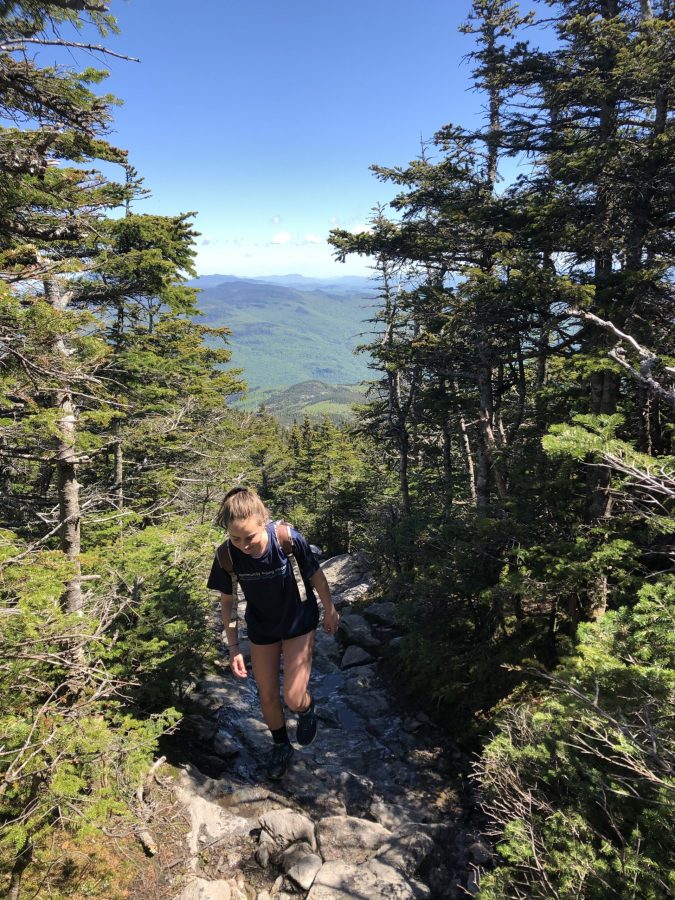

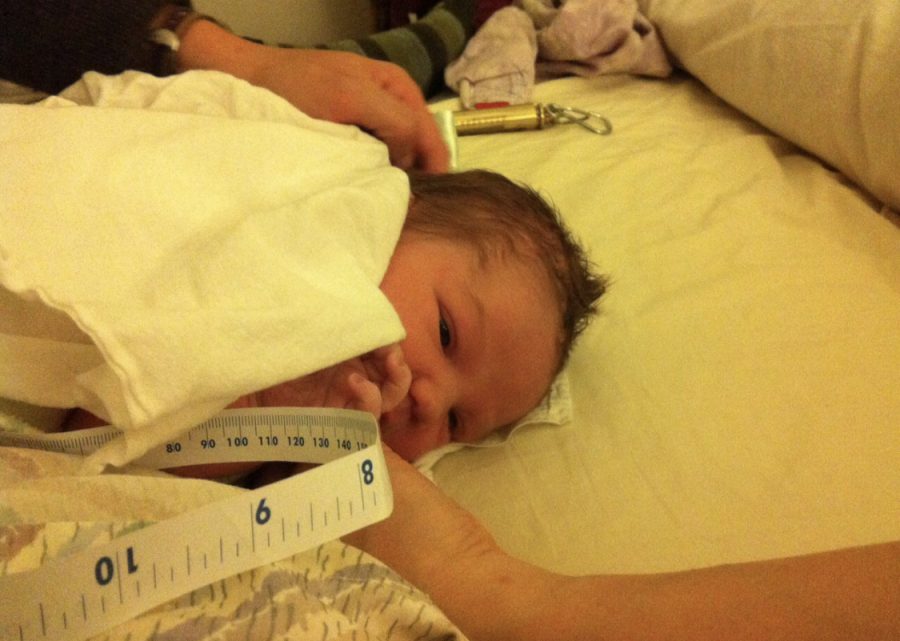

Tré Diemer • Sep 30, 2018 at 9:31 pm
It sucks this paper is allowed to take students words out of context and hurt the reputations of students at the school to sell a story.. FAKE NEWS..